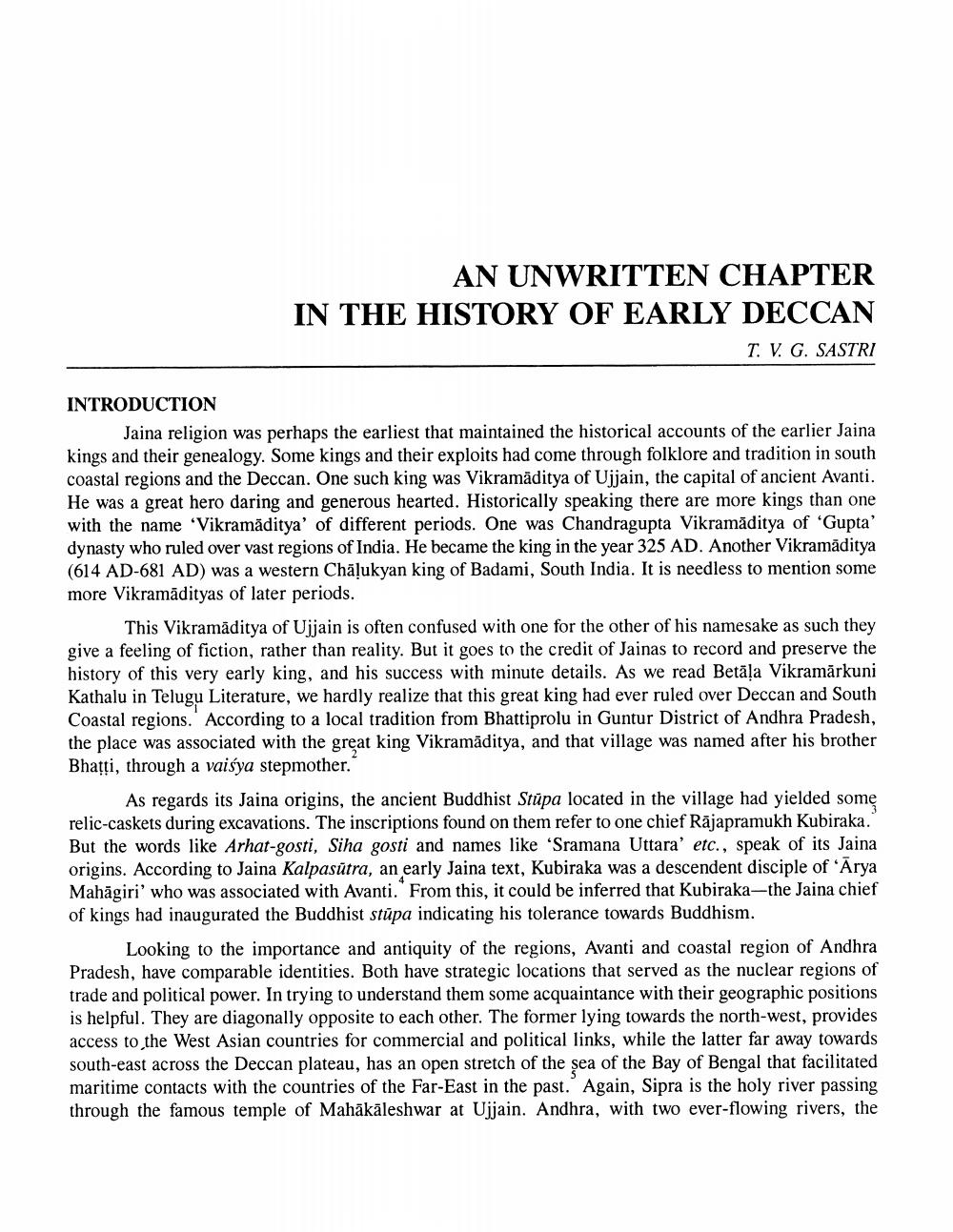________________
AN UNWRITTEN CHAPTER IN THE HISTORY OF EARLY DECCAN
T. V. G. SASTRI
INTRODUCTION
Jaina religion was perhaps the earliest that maintained the historical accounts of the earlier Jaina kings and their genealogy. Some kings and their exploits had come through folklore and tradition in south coastal regions and the Deccan. One such king was Vikramāditya of Ujjain, the capital of ancient Avanti. He was a great hero daring and generous hearted. Historically speaking there are more kings than one with the name 'Vikramaditya' of different periods. One was Chandragupta Vikramaditya of 'Gupta dynasty who ruled over vast regions of India. He became the king in the year 325 AD. Another Vikramaditya (614 AD-681 AD) was a western Chäļukyan king of Badami, South India. It is needless to mention some more Vikramādityas of later periods.
This Vikramaditya of Ujjain is often confused with one for the other of his namesake as such they give a feeling of fiction, rather than reality. But it goes to the credit of Jainas to record and preserve the history of this very early king, and his success with minute details. As we read Betāļa Vikramārkuni Kathalu in Telugu Literature, we hardly realize that this great king had ever ruled over Deccan and South Coastal regions. According to a local tradition from Bhattiprolu in Guntur District of Andhra Pradesh, the place was associated with the great king Vikramāditya, and that village was named after his brother Bhațți, through a vaisya stepmother.
As regards its Jaina origins, the ancient Buddhist Stūpa located in the village had yielded some relic-caskets during excavations. The inscriptions found on them refer to one chief Rājapramukh Kubiraka. But the words like Arhat-gosti, Siha gosti and names like 'Sramana Uttara' etc., speak of its Jaina origins. According to Jaina Kalpasūtra, an early Jaina text, Kubiraka was a descendent disciple of 'Arya Mahāgiri' who was associated with Avanti. From this, it could be inferred that Kubiraka-the Jaina chief of kings had inaugurated the Buddhist stūpa indicating his tolerance towards Buddhism.
Looking to the importance and antiquity of the regions, Avanti and coastal region of Andhra Pradesh, have comparable identities. Both have strategic locations that served as the nuclear regions of trade and political power. In trying to understand them some acquaintance with their geographic positions is helpful. They are diagonally opposite to each other. The former lying towards the north-west, provides access to the West Asian countries for commercial and political links, while the latter far away towards south-east across the Deccan plateau, has an open stretch of the sea of the Bay of Bengal that facilitated maritime contacts with the countries of the Far East in the past. Again, Sipra is the holy river passing through the famous temple of Mahākāleshwar at Ujjain. Andhra, with two ever-flowing rivers, the




